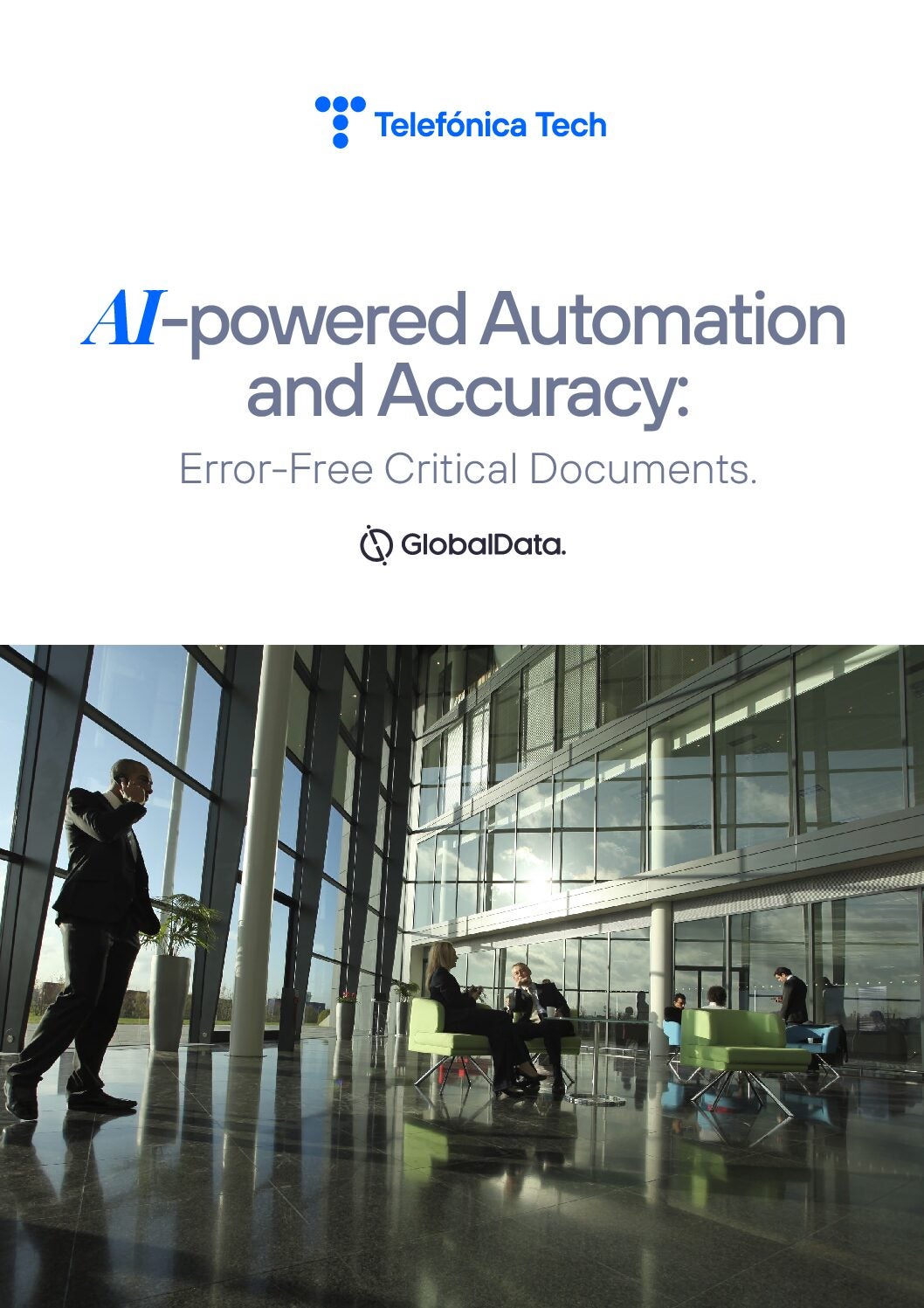
Digital transformation is driving profound changes across all industries and markets. One of the most revolutionary advancements is the integration of Generative Artificial Intelligence (GenAI) into the creation, management, and review of contracts. These technologies have emerged as an efficient and precise solution, addressing the inherent complexities of legal and contractual documentation.
Sectors such as finance, insurance, and energy require robustness and clarity in contracts. From financial agreements and insurance policies to energy supply contracts, these documents form the legal and operational foundation of businesses. Traditionally, creating and reviewing them is an intensive process, requiring the involvement of lawyers and specialists to ensure accuracy, regulatory compliance, and risk mitigation.
However, this manual approach is slow, costly, and prone to human error. In a context where the volume of contracts is growing exponentially, a more efficient solution is needed—this is where Generative AI offers a disruptive advantage.
Generative AI: What Is It and How Is It Transforming Contracts?
Generative AI is a type of artificial intelligence that uses sophisticated algorithms (neural networks) trained on vast datasets to generate coherent and contextually relevant text based on prior information. It enables machines to understand, interpret, and generate human-like text (natural language). Applied to contract management, it automates the drafting, reviewing, and analysis of complex contracts, optimizing operational efficiency.
Platforms like DocuSign or Kira, specialized in document management, are already employing GenAI. These platforms not only enable the automated creation of contracts from predefined templates but also improve the ability to review large volumes of documents in record time, reducing human errors and minimizing legal risks. While these tools are relatively new, their growth is exponential, and according to Gartner, this market will reach $50 billion by 2027.
Moreover, GenAI facilitates the recognition of entities such as personal or sensitive information (names, IDs, addresses, account numbers). With these tools, we can not only easily extract all this information but also classify it as confidential and automatically anonymize it in standard contracts to ensure compliance with data protection legislation. Gartner forecasts that, within three years, half of all contract management processes will use GenAI.
Use Cases in Finance, Insurance, and Energy
Sectors like finance, insurance, and energy share the need to constantly handle a large volume of legal documents and contracts. In this sense, GenAI can revolutionize the way contract creation, review, and processing are approached. Given that these sectors are subject to stringent and evolving regulations at local, national, and international levels, the ability to automatically review contracts and compare them with applicable laws is a clear benefit of GenAI tools. This enables the detection of ambiguous clauses or inconsistencies, helping to evaluate risks and reduce future disputes.
In the insurance sector, for example, the rapid analysis of contract terms allows for determining coverage and facilitating the resolution of disputes. This not only improves operational efficiency but also provides a more agile and satisfying experience for customers who value quick responses in critical moments. Another significant advantage is the personalisation of contracts in any of these sectors, tailoring products and terms to the client’s profile. The impact of GenAI on contract management in these sectors will be highly positive, potentially increasing the legal department’s productivity by up to 80%, according to McKinsey.
Technical Architecture for Smart Contracts
To implement a robust GenAI solution in contract management, a solid technological architecture that ensures scalability, security, and accuracy is essential. We can distinguish four layers:
- Underlying Infrastructure: Depending on specific needs, a cloud, on-premise, or hybrid architecture can be deployed. Many companies opt for the latter, combining the flexibility and scalability offered by hyperscalers (Azure, AWS, Google) with on-premise servers to handle sensitive data while maintaining privacy. These solutions are generally hosted in containers (Docker) with orchestrators like Kubernetes, allowing the platform’s different modules to be deployed and updated independently.
- Data Processing and Models: The core of these GenAI solutions is the language model (LLM). Pre-trained models like GPT or Llama require significant computational resources (GPUs) to run with low latency and can be fine-tuned for specific legal cases on large volumes of legal documents. Depending on various considerations, paid or open-source LLMs can be implemented. Additionally, interoperability with systems like CRMs or ERPs (e.g., Salesforce or SAP) allows models to access relevant client data for real-time contract personalisation.
- Security and Compliance: End-to-end encryption must be implemented for both data in transit and at rest. To ensure that only authorized users can interact with the contracts, it’s essential to implement authentication and authorisation systems that comply with applicable security standards. Additionally, when dealing with sensitive data and AI algorithms, both GDPR and the upcoming EU AI Act must be adhered to.
- Analysis and Monitoring: These tools can incorporate alerts when anomalies are detected to identify inconsistencies in contracts, allowing legal teams to preempt problems. It’s crucial to have traceable data, maintaining a detailed history of all changes made to a contract, facilitating both internal and external audits.
Conclusion
As we have seen, GenAI is redefining contract management in critical sectors like finance, insurance, and energy. By automating and optimising the creation and review of contracts, companies can operate more efficiently, reduce costs, and minimise legal risks while ensuring compliance with current regulations. The future of contracts is smart, agile, and, above all, safer thanks to GenAI.



